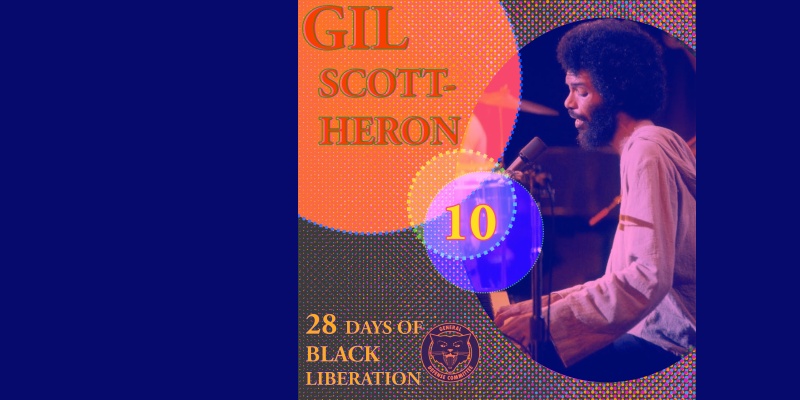Day 10 of the 28 Days of Black Liberation 2024 series
Born in 1949 in Chicago, Gil Scott-Heron was a jazz poet, singer, musician, author, rap pioneer, and spoken-word performer. Best known for his album, “Pieces of a Man,” released in 1971 which included the widely praised and renown song, “The Revolution Will Not Be Televised.” He continued to release 8 more albums within the decade exploring various genres, sounds, and lyrical content that inspired many artists that are household names such as Talib Kweli and Kendrick Lamar, often going so far to sample his spoken word poetry.
Blending funk, blues, and jazz, Scott-Heron’s lyrical/poetry content was influenced by the Black Arts Movement (expanding on the reverberations of the Harlem Renaissance) and The Last Poets, a group of poets and musicians during the 1960s creating in rising popularity of black nationalism during the Civil Rights Movement. Gil Scott-Heron wrote songs criticizing the Vietnam War, racial injustice, as well as the South African Apartheid, his song “Johannesburg” highlighted the struggle against racist apartheid in South Africa before many news organizations had picked up the story. Scott-Heron used his renown to perform against nuclear weapon proliferation and performed with Stevie Wonder to recognize Martin Luther King Jr.’s birthday as a federal holiday.
Gil Scott-Heron passed away in 2010, however his works live on in those he inspired in contemporary “conscious” rap you’ll find threads of his influence. His frustrations and righteous anger continue in the threads of the struggle today.

